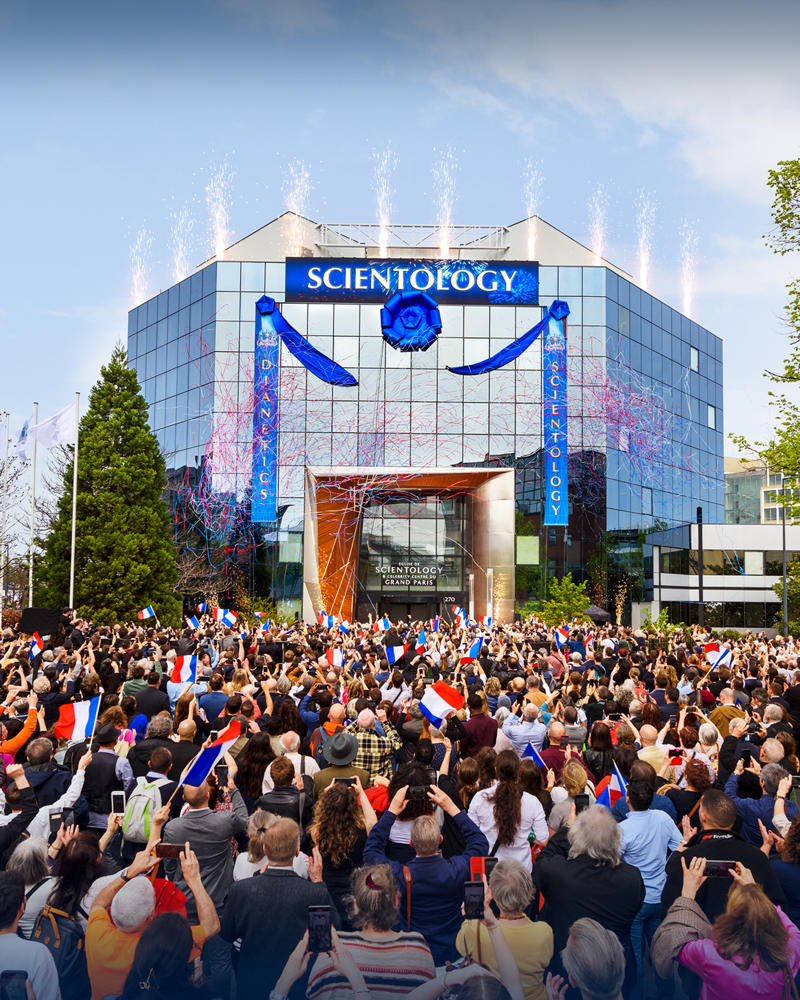The History of Scientology: From Its Founding to Existing Day
The History of Scientology: From Its Founding to Existing Day
Blog Article
Unmasking Misconceptions: Separating Truth From Fiction Regarding Scientology

Origins of Scientology
The origins of Scientology trace back to the mid-20th century when L. Ron Hubbard, a sci-fi writer, established the idea system in the 1950s. Hubbard's growth of Scientology came from his earlier self-help system called Dianetics, which he presented in the 1940s - Scientology. The change from Dianetics to Scientology noted a shift towards a much more thorough religious viewpoint that integrated facets of psychology, Eastern spiritual traditions, and Hubbard's own concepts on human presence
Hubbard's expedition right into the human mind and spirit led to the creation of Scientology as a religious beliefs focused around the principle of spiritual knowledge and self-improvement via a procedure called bookkeeping. Bookkeeping, a type of spiritual therapy, intends to aid people overcome mental and emotional barriers, called engrams, that impede individual growth and understanding.
As Hubbard's trainings obtained appeal, Scientology advanced right into an international activity with a substantial following. Regardless of conflicts and objections bordering its methods and beliefs, Scientology remains to attract followers looking for spiritual gratification and individual growth.
Core Beliefs and Practices

An additional basic facet of Scientology is the principle of the Thetan, the spiritual significance of a person that goes beyond the physique. Fans intend to recognize and reinforce their link to the Thetan with numerous practices such as study programs and purification rituals.
The Church of Scientology also places a strong emphasis on the importance of personal responsibility and the idea that individuals have the power to shape their very own fates. Via adherence to honest guidelines and the pursuit of self-improvement, specialists of Scientology strive to achieve better degrees of joy, success, and spiritual satisfaction.
Criticisms and conflicts
Amidst Scientology's core ideas and practices exists a landscape noted by debates and objections that have stimulated extreme argument and analysis. Additionally, Scientology's condition as a tax-exempt spiritual organization in some nations has been a factor of opinion, with critics suggesting that its techniques are more similar to an organization than a religious beliefs.
An additional location of debate borders the Church's therapy of movie critics and skeptics. Reports have emerged of harassment, scare tactics, and lawful threats directed at those who speak up versus Scientology. This has actually raised worries regarding freedom of expression and the organization's commitment to transparency and responsibility.
While Scientology has actually vehemently denied a number of these accusations, the objections and controversies bordering the Church remain to fuel public skepticism and scrutiny.
Scientology's Influence in Society
With its existence in different markets of culture, Scientology's influence can be observed in both overt and subtle methods, shaping interactions and perceptions. In the realm see this website of education, the Church of Scientology has faced analysis for its initiatives to introduce its teachings right into colleges via programs like "Applied Scholastics." Doubters suggest that such efforts blur the lines between church and state, potentially impacting the instructional experiences of pupils. In addition, Scientology's impact expands to the realm of psychological health and wellness, where its views on psychiatry and psychology have actually triggered discussions within the clinical neighborhood. The church's anti-psychiatry stance has actually brought about apprehension and concerns concerning the efficacy of psychological try this web-site health and wellness treatments. In the world of amusement, Scientology's organization with prominent celebrities has actually accentuated the religion, both positively and negatively. The participation of popular figures in Scientology has, sometimes, offered to popularize the faith, while in others, it has drawn objection and questioned regarding the church's ideas and practices.
Debunking Common Misconceptions
What misconceptions concerning Scientology are commonly held and exactly how can they be disproved? One typical misconception regarding Scientology is that it is a cult. Nevertheless, the Church of Scientology is legally acknowledged as a religion in several countries, consisting of the USA, where it has tax-exempt status. Like other religions, Scientology gives spiritual support and methods for its members.
Another false impression is that Scientology forces its members to cut connections with their family members. In truth, the church highlights the relevance of family members relationships and encourages members to maintain healthy connections with their loved ones.

Verdict
Finally, it is necessary to different truth from fiction when reviewing Scientology. By analyzing its beginnings, core ideas, controversies, and influence in society, we can debunk common misconceptions surrounding this faith. It is crucial to come close to the subject with a essential and unbiased way of thinking in order to recognize Scientology precisely and right.
Rooted imp source in a structure of spiritual enlightenment and individual growth, Scientology's core beliefs and methods incorporate a varied variety of principles and rituals. Central to Scientology is the idea that people are immortal spiritual beings that have actually forgotten their true nature. The involvement of well-known figures in Scientology has, in some instances, offered to popularize the religion, while in others, it has actually drawn objection and increased questions concerning the church's methods and beliefs.
The Church of Scientology is legally recognized as a religion in lots of countries, consisting of the United States, where it has tax-exempt condition. Like other faiths, Scientology offers spiritual guidance and methods for its members.
Report this page